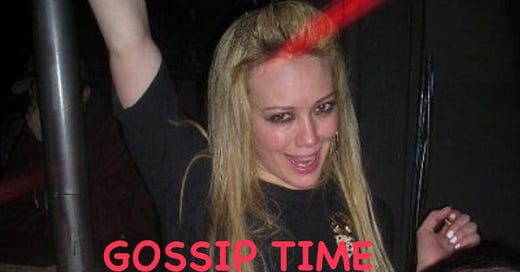Hello and welcome to Gossip Time, a weekly guide to the stars by Allie Jones. Today, we have a very special Q&A with Matt James, the genius behind the storied celebrity blog Pop Culture Died in 2009.
I want to start by thanking everyone who subscribed to Gossip Time in the last week — you are all my best friends now. Going forward, I’m going to make bon…
Keep reading with a 7-day free trial
Subscribe to Gossip Time to keep reading this post and get 7 days of free access to the full post archives.




